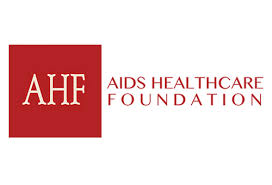By Asmau Ahmad
The Aids Health Care Foundation (AHF), said it had concluded arrangements to take its public enlightenment campaign on summarised version of Anti-Discrimination Act 2014 to communities across five states of the federation and the FCT.
The Country Programme Manager, Dr. Adetayo Towolawi, disclosed this in an interview with newsmen in Abuja.
According to him, the campaign will be taken to Benue, Kogi, Nassarawa, Anambra, Cross River states, and the FCT.
He said the summary version of the HIV Anti-discrimination Act which was published by the foundation was aimed at making the document more accessible to policy makers, practitioners and every Nigerian.
He added that “the primary reason for developing this popular version is to make the document accessible to policy makers and practitioners who need to understand its essence and support the implementation.
“The version was summarised with key sections and provisions of the Act maintaining its integrity and its meaning not altered. The document also covers an overview of the law, primary target and important implementation arrangements with penalties for violation.”
He says the law applies to all persons living with and affected by HIV and AIDS in Nigeria, as well as employers of labour and employees in the public and private sectors. Towolawi said AHF would train its staff across the five states on how to interpret the provisions of the law who would in turn educate community leaders and its members.
He explained that the community dialogue was to empower community leaders and members on the version for members to understand when they were being discriminated against or stigmatised.
All persons living with and affected by HIV and AIDS should have access to treatment and organisations that could provide free legal services when they encountered any form of discrimination, he noted.
The objectives of the law, he said, included elimination of all forms of discrimination based on HIV status, creating supportive environment so that infected people could work under normal conditions as long as they were medically fit and promoting and appropriate effective ways of managing HIV in work places, communities and institutions.
The programme manager stressed the rights of persons living with HIV, saying the law seeks the responsibility of individuals, communities and employers to prevent all forms of stigma and discrimination.




